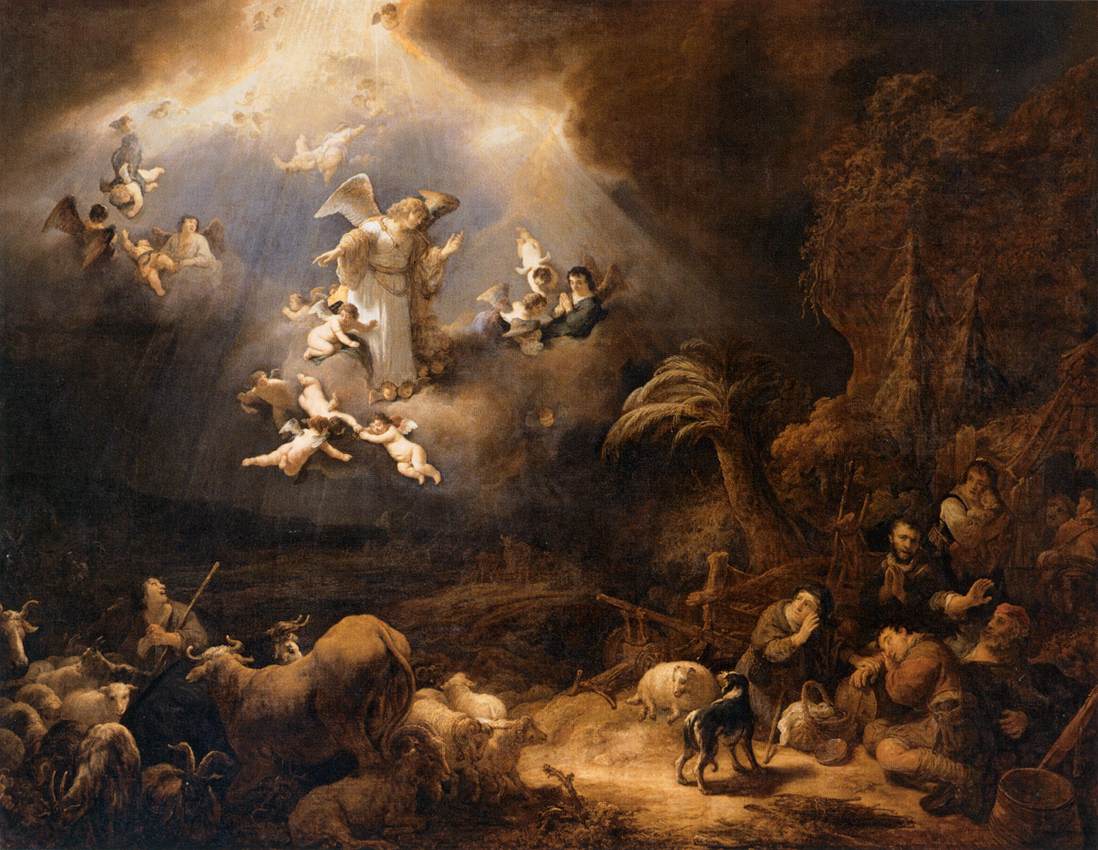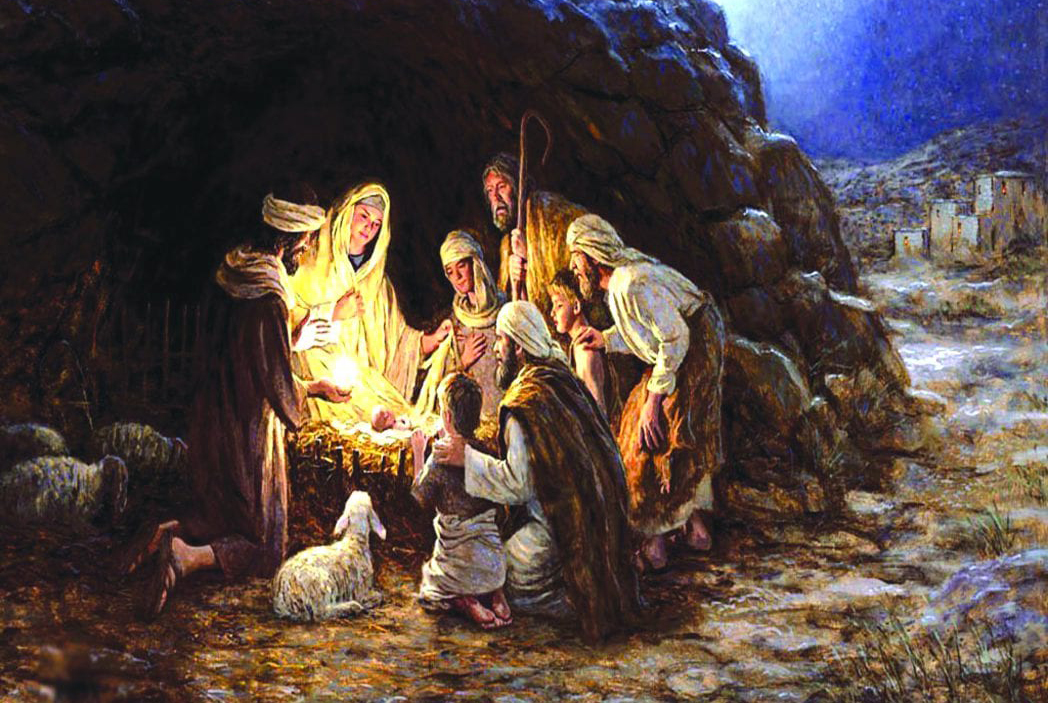Christmas Eve, Gospel Year C
From the Editor:
Please welcome a new writer to our fold: the Rev. Ben Williams. Ben was my Intern Pastor in a previous call, and has done me proud with this submission.
Merry Christmas Eve, in advance.
Lori
Registered Belonging
Luke 2:1-20
Nativity of Our Lord, Christmas Eve
Analysis by Ben Williams
1In those days a decree went out from Emperor Augustus that all the world should be registered. 2This was the first registration and was taken while Quirinius was governor of Syria. 3All went to their own towns to be registered. 4Joseph also went from the town of Nazareth in Galilee to Judea, to the city of David called Bethlehem, because he was descended from the house and family of David. 5He went to be registered with Mary, to whom he was engaged and who was expecting a child. 6While they were there, the time came for her to deliver her child. 7And she gave birth to her firstborn son and wrapped him in bands of cloth, and laid him in a manger, because there was no place for them in the inn.
8In that region there were shepherds living in the fields, keeping watch over their flock by night. 9Then an angel of the Lord stood before them, and the glory of the Lord shone around them, and they were terrified. 10But the angel said to them, “Do not be afraid; for see—I am bringing you good news of great joy for all the people: 11to you is born this day in the city of David a Savior, who is the Messiah, the Lord. 12This will be a sign for you: you will find a child wrapped in bands of cloth and lying in a manger.” 13And suddenly there was with the angel a multitude of the heavenly host, praising God and saying,
14“Glory to God in the highest heaven,
and on earth peace among those whom he favors!”
15When the angels had left them and gone into heaven, the shepherds said to one another, “Let us go now to Bethlehem and see this thing that has taken place, which the Lord has made known to us.” 16So they went with haste and found Mary and Joseph, and the child lying in the manger. 17When they saw this, they made known what had been told them about this child; 18and all who heard it were amazed at what the shepherds told them. 19But Mary treasured all these words and pondered them in her heart. 20The shepherds returned, glorifying and praising God for all they had heard and seen, as it had been told them.
As the angels announce to the shepherds, the baby to be born in the manger will become the savior who dies on the cross. But there, on the cross, Christ will proclaim room enough for even the criminal who asks for paradise. And ultimately rising from the grave, Christ establishes a different registration, in which our names are written in heaven.
DIAGNOSIS: Dutiful Citizens
Step 1: Initial Diagnosis (External Problem): A Decree Went Out
Grounding: The first registration must have been quite the disruption to the rhythm of ordinary life for people like Mary and Joseph. With a simple word, the emperor gets the whole civilized world to stop what they are doing and run to their hometowns. Unfortunately for Mary—who is great with child, and her husband Joseph, that means packing up everything in Nazareth and moving back to Bethlehem with the rest of the family. Such is the duty of responsible citizenship. After all, the emperor’s decree is the law and will help keep good order. Right?
Tracking: Isn’t it typical that ordinary people with seemingly little influence in the world get pushed around by those in power? Every ten years in the United States, a census is taken. Every ten years, that census informs how political maps are drawn. Every ten years, those in power get to change how ordinary folk interact with the political system. But, more frequently than that, the tax code could change year to year; disrupting the livelihoods of hard-working folks. New or changing mandates issued by state and local governments have direct impact on people living under their rule. The problem is that we don’t all agree on what disruptions are worth the inconvenience or what responsible citizenship even looks like! It is no wonder, then, why we fight each other so vehemently over the decisions of those in power.
Step 2: Advanced Diagnosis (Internal Problem): Familial Consternation
Grounding: As Luther puts it, “At the very first moment of his life, Christ and his parents had to give evidence of obedience, not to God, but to the heathen emperor…” And so, as dutiful citizens, Mary and Joseph return home; only to find that the rest of the family has already arrived; everybody doing their civic duty! So, with the guest room already filled, Mary and Joseph find their way to the stables. Undoubtedly, this caused some tension for the two of them. The pregnant Mary could not have been thrilled to give birth in a barn; already an outsider to the family, she is now shoved in with the animals! However, the family did fulfill their obligation: there’s always room for family. Too bad about the smell though!
Tracking: This tension provides a familiar story for many: squabbles happen at any large family gathering. Though, in a day and age filled with such personal and global tension, there is something particularly alarming about the discord of late. It is as if we have all become our own experts, doing our own research, and concluding that the only valid position is our own. There is no room for dissenting opinions; no room for discussion; no room for Uncle Jim’s latest theory. And what’s worse? We have given our obedience and fidelity to those who hold power; staking our very selves on the success or failure of “our” side. And so, we hold firm to what “our” side asks of us; fulfilling our duty as concerned citizens, even to the detriment of those whom we love.
Step 3: Final Diagnosis (Eternal Problem): Dismissed in Terror
Grounding: As anyone who has attempted to create a birthing plan knows, Mary and Joseph realize the futility of planning when, where, and how a baby is born. Following the Emperor’s decree has placed them in a precarious situation giving birth among the livestock; risking the health and safety of their newborn baby. So, as shepherds watched their flocks, and the family was comfortably asleep in the guest room, Mary and Joseph were left in their perilous state. The sheer terror of what was to come must have been as palpable as the pungent smell rising to Mary and Joseph’s nostrils. Meanwhile, those same shepherds doing their duty on this fateful night, minding their own business, are suddenly visited by an angel of the Lord. As the glory of the Lord shone around them, terror is the only thing that registered for them as well. There is just something so unnerving about God’s presence when we are merely doing our duty.
Tracking: Ultimately, we find that “our” side is yet another power that pushes us around. It is as if God has set the world in motion, and we are stuck with our lot no matter what side we are on. We are stuck with a world that has no room for us. Ultimately, because we place our fear, love, and trust in the emperor and his decrees, we are met with terror when we realize our misplaced allegiance leaves no room for us with God either.
PROGNOSIS: Faithful Belonging
Step 4: Initial Prognosis (Eternal Solution): Welcomed in Belonging
Grounding: “To you is born this day in the city of David a Savior, who is the Messiah, the Lord” (v. 11). As the angels announce to the shepherds, the baby to be born in the manger will become the savior who dies on the cross. But there, on the cross, Christ will proclaim room enough for even the criminal who asks for paradise (23:42). And ultimately rising from the grave, Christ establishes a different registration, in which our names are written in heaven (10:20).
Crossing: Despite our futile attempts to draw near to God, God still comes to us, and makes room for us. Being born in a manger was only the beginning of God’s grace set in motion that fateful night. Cascading throughout history, God’s grace permeates our very being, giving us a deep sense of belonging in God’s world, forever reconciling us with God by no merit of our own.
Step 5: Advanced Prognosis (Internal Solution): Familial Connection
Grounding: With a backdrop of political titans, God chooses to bring this good news to the seemingly small and insignificant folk. The good news of great joy for all people was shared with the shepherds in their fields. The shepherds, then, found the promised savior wrapped in bands of cloth and lying in a manger between Mary and Joseph, who were particularly favored for their humility. And this is only the beginning of Jesus’ ever-expanding family. Later, Simeon and Anna, people who don’t even know Jesus, act like family to him (2:25-38). Why? Because that’s what Christ’s family looks like: belonging and connection—no matter who you are.
Crossing: This deep belonging and connection is found today as well. God continues to work through the seemingly small and insignificant folk, like you and me. On this Christmas Eve night, Christians around the world celebrate that to us is born a savior who loves, dies, and lives for us. The Holy Spirit has built up the church on this reality; not on our works or merit, but because we belong to Christ and, therefore, each other.
Step 6: Final Prognosis (External Solution): Let Us Go Now
Grounding: “Let us go now to Bethlehem,” the shepherds proclaim, “and see this thing that has taken place, which the Lord has made known to us.” These simple shepherds, living and tending to their simple lives, are suddenly compelled to go and see because God has given them purpose and significance. And once there, the shepherds share this significance with the new parents. “And all who heard it were amazed… But, Mary treasured these words…” Every parent believes their child is special, but at the shepherd’s arrival, Mary knows that the joy and purpose she felt at the birth of her son goes far beyond her new little family.
Crossing: As it turns out, we are not so seemingly small or insignificant in God’s eyes! For, if to us is born this savior, then our daily lives have meaning in this world. Our daily work, whether tending fields or pushing pencils, has been given to us as gift and calling. We go about our days as faithful people—joining in God’s work in this world—not because some boss or politician has decreed it, but because we belong to a God who works in small but significant ways.

